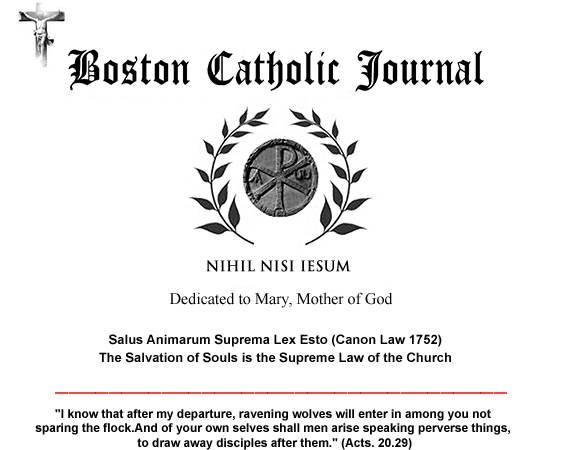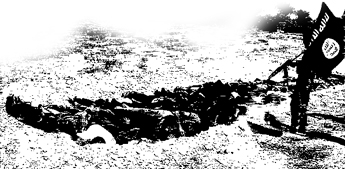|

An
Apostolate of Prayer
for the Dying and the
Dead

Many
seek some form
of active Apostolate to serve Christ and the Church, especially in the
way of helping those poor souls most in need of assistance ... they
seek to assist, to be actively involved in the lives of others who
desperately need help — and it has nothing to do with money.
Most of us do not have money, and even if we did, it would be of no
avail whatever — although it involves the gravest, the most vital act
of charity possible. What is more, you do not have to go anywhere. It
will come to you.
What, then, is this most needful act of charity, and in the most
dire need possible in any person‘s entire life?
It is this:
Whenever you read of or hear about another’s death — in the
news, in your town, in another and remote part of the world ... no matter
who it is ... you should immediately make the Sign of the Cross and
beg God’s mercy on the person who has died, and His pardon for their
sins, and to bring that soul to final repentance and everlasting life
in God's presence.
He alone is the just Judge. It matters not to us who it is that has
died: not his faith or his lack of it; that particular soul is in
dire need of God’s mercy and forgiveness ... and so often has no
one else to pray for them.
Stop what you are doing for a moment, even if it is within yourself,
and pray for them. It will take a few seconds ... but could mean the
salvation of a soul in and through the immeasurable mercy of Christ
Jesus.
What should we
Pray?
The traditional Catholic prayer for the
dead and for the souls in Purgatory is the following:
Eternal rest grant
unto them, O Lord,
and let perpetual light shine upon them.
May the souls of all the faithful departed,
through the mercy of God,
Rest
in
peace.
(hence, the abbreviation R.I.P.)
In Latin it is:
Requiem aeternam dona eis, Domine.
Et lux perpetua luceat eis.
Fidelium animae, per misericordiam Dei,
requiescant in pace.
You will be surprised how active — even demanding — you will find this
quiet and hidden apostolate to be.
What is more, carry it a step further: when you hear the wail of an
ambulance, do likewise, and pray for the healing of the soul to whose
need it is going. If they are in peril of death (and you know not!)
pray for God’s mercy and forgiveness.
This way, you will accompany so many souls on their last and often most
perilous journey: from this life to the next; from this world to Heaven,
despite the very real danger of Hell.
One day you will need the prayers of others — and perhaps
one single person’s prayer will open the gates of Heaven
... and shut the gates of Hell. Your
prayer to our merciful God may be the
one that makes the difference.
Remember this the next time you read the news or browse the Internet.
Especially in these evil days.
Further Reflections
“I am house-bound — what can I do”?
“I am at work all day — what can I do”?
“I am old and alone — what can I do”?
What clarion is needed to remind you of what only you
can give in a way and measure that is yours alone, and of inestimable
value?
Allow me to suggest a few:
STOP:
-
When
you hear a siren ...
-
When you see a racing fire truck
...
-
When you see a speeding ambulance
...
-
When you watch a hearse pass ...
-
When you hear the screeching of tires
...
-
When
you see tears in the face of another ...
Each of these is
a clarion, a loud call, to stop whatever you are doing
... and to pray for someone in desperate need;
in the case of an ambulance, urgent, even critical need; and upon observing
a hearse, an even greater need for mercy that extends to eternity.
“Wonderful idea!”
you say. Yes — but to put this into practice is difficult: it requires
sacrifice (of time) and discipline (lest you become callous and indifferent
through constant exposure) and most of all, the realization that
it is a genuine Apostolate ... an Apostolate of Prayer. It requires
your believing that God hears our prayers, and that God answers our
prayers. It is a realization that we are, for that time in prayer,
intimately united with those who suffer and die. Our prayers
can help them! But only if we pray.
“But”
you further protest, “I would be praying practically all day!”.
Yes ... you would. And someday — absolutely for certain — you
will be that person in need of the prayers of others who prostrate
themselves (inwardly or outwardly) before God Who can do all things.
“Whatever you ask in My Name will be given you”,
Christ told us. Yes, but what if no one invokes that Most Holy Name?
What if we leave it to others to pray ...
-
for
the children
of a dying father; children who have not yet learned to pray or
who do not know God?
-
for
the injured, the dead, and the dying, and for the rescue workers
at a suicide bomber site in some remote part of the world
...
-
for
the mother who alone survived the car crash that killed her husband
and all her children.
We must come to realize
that such calamities
may come to our own doorstep and so much sooner than we imagine.
Who will pray for us?
Our circumstances, it seems, always limit us. We never seem to be where
we feel that we could be able help others in their desperate need ...
even in their last need. Perhaps we even feel that we seldom encounter
the need by others for our prayers at all: everyone we know and care
about is well and there is no impending crisis at hand.
What will call us to prayer? What will remind us of how desperately
our prayers are needed? How can can we help those of whom we know little
or nothing ... and yet need our prayers?
Think of this:
Perhaps we will be the only ones praying for them!
People do not need your “thoughts”!
What does this
even mean? The currently senseless and terribly monotonous
— as well as utterly pointless and useless — “sound-bite”
that we ever hear upon hearing of another’s illness or death is this:
“You are in our thoughts”
.
It is the secular and
“correct” meaninglessness that demonstrates an utter absence of faith
and a thorough indoctrination with prevailing “social correctitude.”
What is the point of these self-inflating words?
Do your “thoughts”
somehow magically help others?
Do your “thoughts”
really comfort anyone? Your
thoughts are an endless train of related and unrelated events, ideas,
or intuitions. They all have this in common: they are only thoughts
... and nothing more. They will pass or soon (as in “within
seconds”)
be replaced by other thoughts, and you are invested in them only
fractionally, momentarily. Some thoughts will result in actions (most
of them not memorable), but most do not. We are most often simply passive
spectators of our own thoughts — if we are aware of them at all!
Our prominent political leaders are extremely adept at keeping unfortunate
people and their families “in their
thoughts”
following some tragedy, and this is to say that they will forget them
as soon as they leave the press conference hastily assembled to demonstrate
their supposed “solidarity”
with the sufferers — and because they have more pressing issues that
are (surprise!) “in their thoughts”
also. Especially when golfing immediately following the press conference.
Do not be like them.
-
“Pray”
for the dead — every time you hear or read of someone’s death
-
“Pray”
every time you hear a siren — fire, ambulance, police — and pray
when you witness a somber funeral cortege (which will one day be
your own)
-
“Pray”
for the sick
-
“Pray”
for the dying
They do not want or
need your “thoughts ”
— but they desire, indeed, they need your prayers ...
to One Who can help them and deliver them.
Editor
Boston Catholic Journal
 Printable PDF Version
Printable PDF Version
Comments? Write
us:
editor@boston-catholic-journal.com

Totally Faithful to the Sacred
Deposit of Faith entrusted to the Holy See in
Rome
“Scio
opera tua ... quia modicum habes virtutem, et servasti
verbum Meum, nec non negasti Nomen Meum”
“I
know your works ... that you have but little power,
and yet you have kept My word, and have not denied My
Name.”
(Apocalypse 3.8)
Copyright © 2004 - 2026 Boston Catholic
Journal. All rights reserved. Unless otherwise stated,
permission is granted by the Boston Catholic Journal
for the copying and distribution of the articles and
audio files under the following conditions: No
additions, deletions, or changes are to be made to the
text or audio files in any way, and the copies may not
be sold for a profit. In the reproduction, in any format
of any image, graphic, text, or audio file, attribution
must be given to the Boston Catholic Journal.
|
|